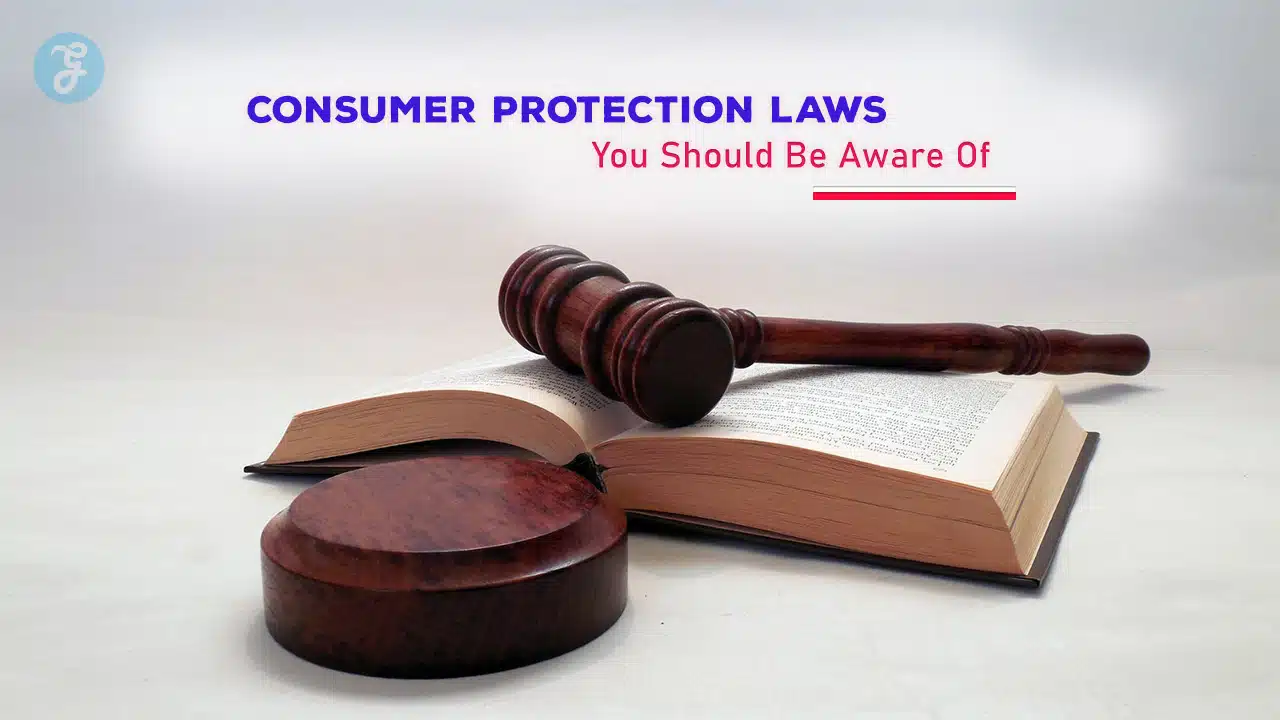In today’s complex marketplace, consumer protection laws are critical safeguards that ensure fairness, transparency, and ethical business practices.
These laws help protect individuals from fraud, predatory practices, faulty products, and unfair treatment in financial transactions while promoting safety and honesty.
Without them, businesses would operate with fewer checks, leaving consumers vulnerable to abuse.
Whether it’s purchasing a product, applying for a loan, or managing a financial dispute, knowing your rights as a consumer is crucial.
This article will dive deep into ten crucial consumer protection laws that offer security and recourse to protect your interests and avoid falling victim to unethical business practices.
1. The Consumer Credit Protection Act (1968)
The Consumer Credit Protection Act (CCPA) was a landmark legislation addressing the lack of transparency in credit practices during the mid-20th century.
Before this law, consumers often faced surprise charges, unfair interest rates, and aggressive wage garnishments without sufficient protection.
What It Covers:
This law compels lenders to disclose the total cost of borrowing, including the interest rate, terms, and fees.
It also limits wage garnishments to prevent lenders from seizing an excessive portion of consumers’ paychecks.
Why It’s Important:
The CCPA ensures that borrowers can make informed decisions by requiring lenders to reveal the actual cost of credit, preventing hidden fees and predatory interest rates that can trap consumers in cycles of debt.
Wage Garnishment Protections:
If a lender sues you for unpaid debt and wins, they cannot garnish more than a certain percentage of your disposable income.
This guarantees that aggressive debt collection practices do not leave borrowers penniless.
2. The Fair Credit Reporting Act (1970)
The Fair Credit Reporting Act (FCRA) was designed to regulate how credit bureaus collect, use, and share credit information.
Credit reports significantly impact consumers’ access to loans, housing, and employment opportunities.
Errors or inaccuracies in these reports can have devastating consequences.
What It Covers:
The FCRA mandates that credit reporting agencies (like Equifax, Experian, and TransUnion) must provide accurate and up-to-date information.
Consumers can access their credit reports for free once per year and dispute inaccuracies.
Why It’s Important:
Your credit report impacts significant life decisions, including whether you can buy a home, rent an apartment, or get a job.
By ensuring the accuracy of credit information, the FCRA helps prevent the use of incorrect data in these decisions.
Dispute Process:
You can file a dispute with the credit reporting agency if you find an error on your credit report.
The law requires them to investigate and correct any inaccuracies within 30 days. If they fail to do so, you can take legal action.
3. The Truth in Lending Act (1968)
The Truth in Lending Act (TILA) is closely related to the CCPA and focuses specifically on transparency in lending agreements.
TILA was enacted to protect consumers from misleading loan practices, especially regarding hidden fees or confusing terms.
What It Covers:
TILA requires lenders to disclose clear and concise information about the terms of a loan, including the Annual Percentage Rate (APR), total cost of the loan, any finance charges, and payment schedules.
It applies to various types of credit, including mortgages, personal loans, and credit cards.
Why It’s Important:
TILA protects consumers from deceptive lending practices by ensuring they are fully aware of the terms of their loans before agreeing to them.
This prevents unpleasant surprises, such as hidden balloon payments or unexpectedly high interest rates.
Consumer Recourse:
If lenders fail to comply with TILA, borrowers can sue for damages.
Moreover, TILA also grants a three-day right of rescission for certain types of loans (such as home equity), giving borrowers a period to cancel a loan after signing without penalty.
4. The Fair Debt Collection Practices Act (1977)
The Fair Debt Collection Practices Act (FDCPA) was enacted in response to widespread abuse by third-party debt collectors, who often used intimidation and deception to collect unpaid debts.
What It Covers:
The FDCPA prohibits debt collectors from using abusive, unfair, or deceptive practices when attempting to collect debts.
For example, they cannot threaten violence, use obscene language, or falsely claim they will be arrested.
The law also restricts the hours collectors can call you, generally limiting contact between 8 a.m. and 9 p.m
Why It’s Important:
Debt collectors often operate under high pressure to collect debts, and without this law, they could resort to unscrupulous tactics.
The FDCPA provides a framework that protects consumers from harassment and ensures debt collection is handled lawfully and ethically.
Your Rights Under the FDCPA:
You can request that debt collectors stop contacting you by sending a written request.
If they continue to harass you, you have the right to sue them for damages, including emotional distress.
5. The Consumer Product Safety Act (1972)
The Consumer Product Safety Act (CPSA) was created to protect the public from unreasonable risks of injury or death associated with consumer products.
This law established the Consumer Product Safety Commission (CPSC), a federal agency responsible for ensuring that products sold to consumers meet safety standards.
What It Covers:
The CPSC regulates thousands of consumer products, from toys and electronics to household appliances.
The CPSA gives the CPSC authority to set safety standards, ban hazardous products, and conduct recalls.
Why It’s Important:
Without the CPSA, dangerous products could stay on the market indefinitely, threatening consumer safety.
The law ensures that products undergo rigorous testing and that unsafe products are swiftly removed from store shelves.
Product Recalls:
If a product is unsafe, the CPSC can issue a recall.
Consumers are typically entitled to a repair, replacement, or refund for the defective product.
The agency also investigates accidents and injuries caused by defective products.
6. The MagnusonMoss Warranty Act (1975)
The MagnusonMoss Warranty Act sets rules regarding product warranties.
Before this law was enacted, consumers often faced difficulties understanding warranty terms, and manufacturers could easily skirt their obligations.
What It Covers:
The act requires that written warranties be presented in clear, easily understood language.
It also ensures that consumers can file lawsuits if a product fails to meet its warranty terms.
Businesses cannot void a warranty simply because a consumer used an unauthorized service provider for repairs.
Why It’s Important:
Many products have warranties that promise repairs or replacements if they malfunction.
This law ensures that companies honor those promises and prevents them from misleading consumers with complex or ambiguous warranty terms.
Implied vs. Express Warranties:
Even if a product doesn’t have an express written warranty, the law assumes an implied warranty—meaning the product should perform as expected.
If it doesn’t, the consumer may still have legal recourse.
7. The Telephone Consumer Protection Act (1991)
The Telephone Consumer Protection Act (TCPA) was introduced to curb the rise in telemarketing calls and unsolicited phone communications.
The advent of robocalls and aggressive telemarketing practices led to numerous complaints, prompting the need for strict regulations.
What It Covers:
The TCPA prohibits companies from making telemarketing calls using automated systems without prior consent from the consumer.
It also restricts using prerecorded voice messages, faxes, and texts for marketing purposes.
Why It’s Important:
Unwanted robocalls and telemarketing calls can be more than just a nuisance—they can also be used to perpetrate scams.
The TCPA gives consumers control over who can contact them and limits the ability of companies to flood people with unsolicited communications.
Do Not Call Registry:
Consumers can add their phone numbers to the National Do Not Call Registry to prevent telemarketers from contacting them.
Violations of the TCPA can result in significant fines for companies, and consumers have the right to sue for damages.
8. The CANSPAM Act (2003)
The Controlling the Assault of NonSolicited Pornography and Marketing (CAN-SPAM) Act governs commercial email practices, ensuring that consumers aren’t bombarded with unwanted and misleading emails.
The law came into effect as email became a primary form of communication and marketing.
What It Covers:
The CAN-SPAM Act sets rules for businesses sending commercial emails, including requiring accurate subject lines, providing a straightforward way to opt out of future emails, and including a valid physical address.
It also bans misleading or deceptive email content.
Why It’s Important:
Without this law, consumers would be inundated with spam emails from marketers and scammers.
The CAN-SPAM Act helps reduce inbox clutter and ensures businesses communicate transparently with potential customers.
OptOut Rights:
Businesses must include an “unsubscribe” option in every commercial email, and they are legally required to honor opt-out requests within ten business days.
Failing to do so can result in fines and penalties.
9. The Electronic Fund Transfer Act (1978)
The Electronic Fund Transfer Act (EFTA) was enacted to protect consumers who use electronic banking services, such as debit cards, ATMs, and online payment systems.
As electronic transactions became more common, the need for legal protections grew.
What It Covers:
The EFTA provides consumers with rights related to unauthorized transactions, lost or stolen cards, and electronic transaction errors. It also requires financial institutions to provide clear disclosures about fees associated with electronic transactions.
Why It’s Important:
Electronic fund transfers are now a standard way of conducting transactions, but they come with risks.
The EFTA helps limit your liability if your card is stolen or someone makes unauthorized transactions on your account.
Consumer Protections:
If you report a lost or stolen debit card within two business days, your liability for unauthorized transactions is limited to $50.
If you wait longer, you could be liable for up to $500 or more, depending on when you report the issue.
10. The Dodd-Frank Wall Street Reform and Consumer Protection Act (2010)
The Dodd-Frank Act was passed in response to the financial crisis 2008 and aimed to increase financial industry regulation while protecting consumers from abusive financial products and practices.
What It Covers:
The Dodd-Frank Act established the Consumer Financial Protection Bureau (CFPB), which enforces consumer protection laws and regulates financial institutions.
It also introduced reforms to protect consumers from predatory lending, risky mortgage products, and deceptive financial practices.
Why It’s Important:
The financial crisis exposed consumers to the vulnerability to risky and misleading financial products.
The Dodd-Frank Act empowers regulators to protect consumers from unfair practices and helps ensure the financial system’s stability.
Consumer Financial Protection Bureau:
The CFPB actively investigates consumer complaints about credit cards, mortgages, and other financial products.
If you encounter unfair treatment from a financial institution, you can file a complaint with the CFPB for assistance and potential redress.
Conclusion
Consumer protection laws are a vital part of the modern marketplace, helping to ensure that businesses operate ethically and that consumers are treated fairly.
These laws give you the tools and knowledge to protect yourself from fraud, deception, and unfair practices, whether taking out a loan, buying a product, or dealing with a debt collector.
By familiarizing yourself with these ten crucial consumer protection laws, you can confidently navigate the marketplace, knowing your rights are protected.
Always be proactive in understanding your rights, and don’t hesitate to take action if you believe a business is violating consumer protection laws.








































